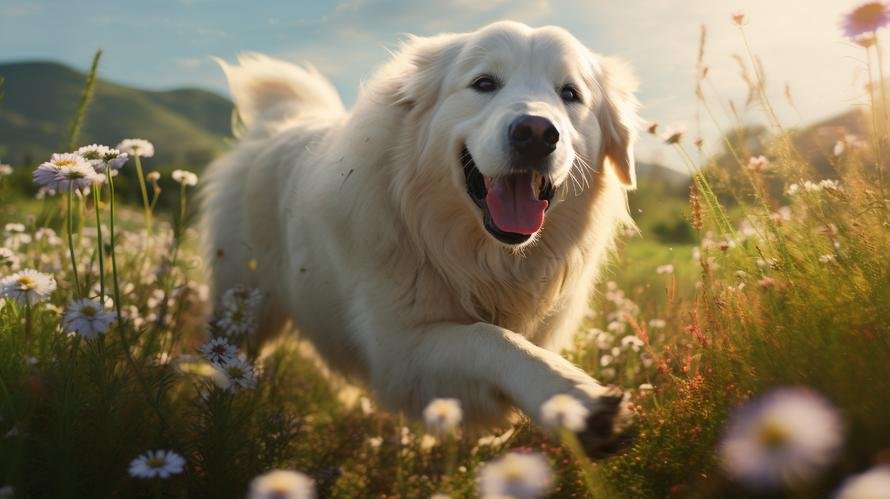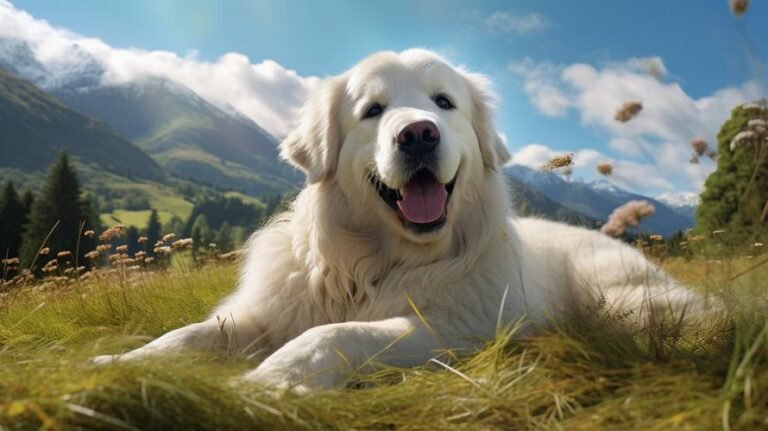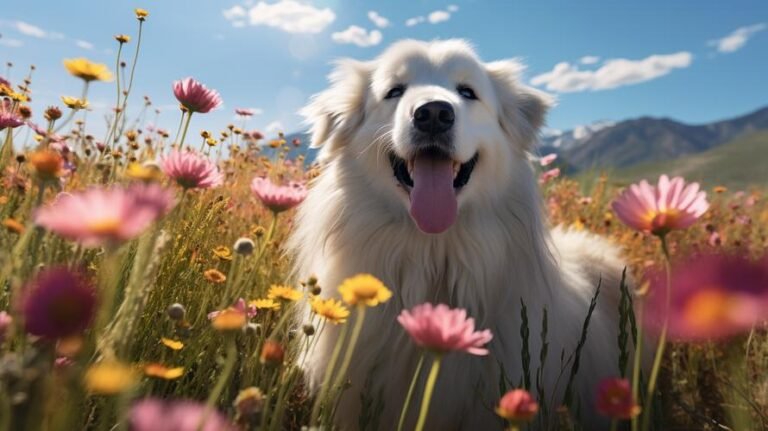Imagine a majestic creature, pure white and stately, standing tall over a backdrop of sprawling farmsteads or snow-covered mountains. You’ve just painted an image of the Great Pyrenees in your mind! These large dogs have been guardians of livestock, families, and even castles for centuries. But, when you see their imposing stature, readiness to bark, and occasional stubbornness, you might wonder, are these gentle giants aggressive?
So, let’s explore this question together.
Firstly, we should clear up a common misunderstanding. It’s often easy to confuse aggression with a dog’s potential display of dominance, protectiveness, or fear. Aggression, in the truest sense, refers to unprovoked, harmful behavior exhibited towards another animal or person. With that in mind, here’s a comforting piece of news: by nature, the Great Pyrenees is not an aggressive breed.
These dogs are known for their docility and even-temperedness under the right conditions. A well-adjusted Great Pyrenees is generally patient, calm, and tolerant. Though they are protectors by instinct and hencely can be wary of strangers, they are not typically aggressive without reason. Remember our discussion about aggression and protectiveness? Here it comes into play.
Great Pyrenees were originally bred in the Pyrenees Mountains between France and Spain to safeguard sheep from predators. This historical background shapes a lot of their behavior, especially their innate guarding instinct. They are protective about their family and territory, which means they can get defensive when they perceive a threat.
But “defensive” doesn’t equate to “aggressive”. In fact, Great Pyrenees often use their size and loud bark to ward off potential dangers, preferring to scare away the threat rather than engage in a fight. Their working history has gifted them with the unique ability to make independent decisions and quickly assess situations, which means they do not attack without cause.
However, if your Pyr appears aggressive, it might be a sign of inadequate socialization, lack of training, fear, or even underlying health issues. In such cases, consult a professional dog trainer or a vetenary behaviorist. Moreover, if your Pyr puppy seems excessively timid or aggressive, it may be worthwhile seeking the advice of a vet. Remember, early intervention can make a world of difference.
How do you ensure your Pyr grows up to be the benevolent giant it is meant to be, then? The secret lies in socialization, training, and a loving environment.
Start socializing your Pyr puppy as early as possible. Expose them to different environments, people, and other animals so they learn not to perceive everything unfamiliar as dangerous. Positive reinforcement training works best for this intelligent breed. Bear in mind, punishment can do more harm than good. Instead, reward them for good behavior with treats and praise to foster confidence and trust.
Provide your Pyr with enough mental stimulation. Despite their calm demeanor, Pyrs are intelligent and need regular not strenuous activities to keep their minds sharp. Puzzle toys or simple hide-and-seek games can do the trick.
Most importantly, love your Pyr unconditionally. A dog that is loved, respected, and well-cared for will return the favor tenfold. Show patience and understanding. Establish a strong, trusting relationship. And soon, you will see your Pyr bloom from a shy pup into a loyal, confident, and loving dog.
To wrap up our fascinating journey into the world of these beautiful giants, remember that the Great Pyrenees is a protective breed, not an aggressive one. Influence their behavior positively with early socialization, positive reinforcement, and plenty of love. And, you will have a loyal, gentle and protective companion in your Great Pyrenees.
After all, behind those calm, wise eyes, there lies a heart bursting with patience, intense loyalty, and a strong drive to protect those they love. And isn’t that the kind of love that we all dream of finding?



